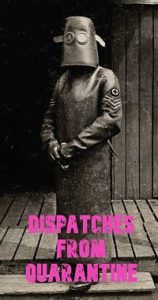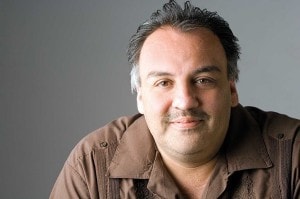
 Like so many of my professor friends, this week is already proving to be the university equivalent of military hell hazing or first day of dog training school or holiday shopping at Trader Joe’s.
Like so many of my professor friends, this week is already proving to be the university equivalent of military hell hazing or first day of dog training school or holiday shopping at Trader Joe’s.
Goodbye class as I knew it.
I am excited to check out best practices and take my colleagues advice as we navigate through this strange new world—I mean, platform.
In actuality, these are really the least of our worries. I am still in the middle of the semester. I have 14 sessions in each class to go. I have about 50 young minds that I am responsible for. This health crisis that is shaking us all and changing our lives by the minute is shifting us in some violent ways.
What has been my stressor are the students themselves. Their anxiety has been met with my calmer-than-normal-cucumber way. I am almost coming off too relaxed, letting them know the Zoom landscape is a safe and comforting place to be. Hahahaha. Right.
Through trial and error, I have already learned a ton of what not to do.
Immediately, I learned that reading a play, as we were doing every week, is a task that does not go well in the little-boxes-staring-at-me world. We wrestled with the mute/unmute, ambient sound, the inability to connect like we emotionally do when we are sitting together in our circle. I could tell the students were frustrated, and they took it out on the play. I have realized that headphones, neutral backgrounds, and not yelling at your roommate while you are reading the play are all going to be helpful elements to overcome.
After we read the play cold and out loud, like we do each week, I repeated my ritual of asking for “the pop”: What struck you about the work, the language, the event? The responses were muted (finally, muted!) and distant. One student didn’t have a pop at all. “I hated this play,” they said.
I took a moment. Bowing my head for just a second.

I remembered when I was studying performance art down on Skid Row in downtown Los Angeles with Scott Kelman. We had a Living Theatre concept we worked from: deliberation; in the act of doing nothing you are always doing something. A way of being ready; of performing; of creating; of being in the moment; of inventing on your feet.
All those years, week after week, of creating the muscle to be good enough to work without warning and take whatever was being thrown our way. Including a virus. I could have kicked myself. I was born for this COVID-19 teaching moment! It’s all my training, and here I am feeling stifled and perplexed by how to reinvent this class.
I admit, I was walking to my car at the end of the day, defeated. Trying to figure out how to wedge this beautiful, delicate process that I have been weaving with the students into a whole new structure and way of working. How silly of me. The truth is, a part of our way of living will not return. Even after containment and vaccine and Lord knows what else. We are changed. And changing. And changing some more.
Every play is different. Every performance is its own unique creature, existing in that ephemeral moment, because of the collective electrical charge of the participants making it, and the audience experiencing it.
Something else needs to happen now. A new way of working. And how am I going to do it if the Starbucks on campus shuts down?
Tomorrow a new class will start. Same objective, but completely different approach. I won’t complain. In fact, I am going to sell the hell out of Zoom. I am going to make these students love it and forget they ever met in the flesh. We are going to learn how to mute/unmute, share our text in a pop-up, and go into a Google Group for fun and research. I’ll send them to BlackBoard to get their announcements and content.
But most of all, I am going to get incredibly real. I am going to counter technology with blood, sweat, and tears. I am going to challenge the impersonal online platform with deeply emotional writing. I am going to fill the empty space with all of the possibility.
And we will take every complicated feeling we are having right now, about the sand that is shifting under us in such radical ways, and give it poetry and feelings. We are going to make art in spite of the world around us, and the self that wants to stick with the tried and true.
Perhaps this is the only way to teach online; as if we were going into rehearsal or performance with a ton of process and experiment. We artists already exist in the avant-garde, because to do what we do requires new ways of thinking and dreaming ahead.
Maybe this is the way to not only get through school, but life too.
Maybe we are the thing we need most now.
Luis Alfaro is associate professor of dramatic writing in University of Southern California’s School of Dramatic Arts.

